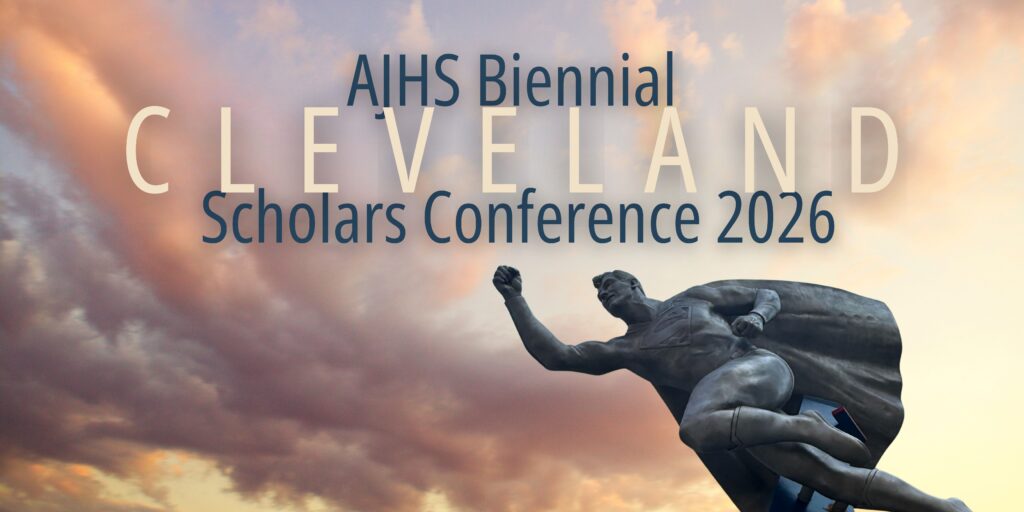
This year’s AJHS Biennial Scholars Conference will be held for the first time in Cleveland, Ohio, from May 31st to June 2nd, 2026.
Cleveland, the home of Superman, the Rock and Roll Hall of Fame, American Zionist leader Abba Hillel Silver, the pioneering Cleveland Council on Soviet Anti-Semitism, and several innovative projects to repurpose historic urban synagogues. This year’s conference theme Up, Up, and Away!: Rescue and Reinvention in American Jewish History will seek to explore how American Jews have responded to dangers and crises of various kinds by seeking – in the absence of real superheros – to protect themselves and others, and – like both Clark Kent and his creators – to change themselves, their narratives, and their institutions.
2026 Biennial Conference Chairs:
Shari Rabin and Alanna Cooper
Conference Committee Members:
Samantha Baskind, Matthew Berkman, Tobias Brinkmann, Max Daniel, Jodi Eichler-Levine, Zev Eleff, Sandra Fox, Rachel Kranson, Sean Martin
Conference Schedule Available Early Spring 2026
Hotel Information:
AJHS has placed holds on rooms at several hotels in the Cleveland area.
Courtyard Cleveland University Circle, 2021 Cornell Rd, $175.00 per night (book by Sunday, May 10th) – Booking Link
Glidden House, 1901 Ford Dr, $179.00 per night – Booking Link
Registration:
Registration rates coming soon!
As a reminder all attendees (except undergrads) are required to be up to date with their Academic Council fees. To become a member or renew please visit our Academic Council page and scroll to the bottom.
Call For Papers
Up, Up, and Away!: Rescue and Reinvention in American Jewish History
The Academic Council of the American Jewish Historical Society, invites submissions, beginning now and until December 1, 2025.
From May 31-June 2, 2026 the American Jewish Historical Society’s Biennial Scholars’ Conference will meet for the first time in Cleveland, the home of Superman, the Rock and Roll Hall of Fame, American Zionist leader Abba Hillel Silver, the pioneering Cleveland Council on Soviet Anti-Semitism, and several innovative projects to repurpose historic urban synagogues.
Against this backdrop, the conference will explore how American Jews have responded to dangers and crises of various kinds by seeking – in the absence of real superheroes – to protect themselves and others, and, like both Clark Kent and his creators, to change themselves, their narratives, and their institutions.
Who and what have American Jews tried to rescue, how, and with what intended and unintended effects? At what moments, and for what reasons, have they sought to rescue, to reinvent, to revive, or to reject? In what ways can historical scholarship itself operate as a form of rescue or reinvention?
Topics might include:
- American Jewish philanthropy and education
- Political activism, at home and abroad
- Reactions to the Holocaust
- Material culture: preservation and re-use
- Responses to social, political, technological, and/or climate change
- Collective and individual religious change, including conversion
- Representations of Jewish rescue and/or reinvention in popular culture
- Any other topic related to American Jewish history
